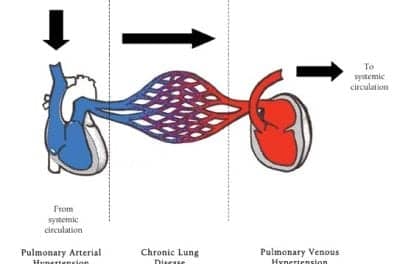In new research, scientists report that they have pinpointed an antibody treatment with the potential to both prevent pulmonary arterial hypertension (PAH), and reverse the condition in mice and rats. Allan Lawrie, PhD, MRC Career Development Fellow from the University of Sheffield’s Department of Cardiovascular Science, led the study, which was recently published in the Journal of Experimental Medicine.
Researchers emphasize the importance of the study, which stems from new data that indicates tumor necrosis factor-related apoptosis-inducing ligand (TRAIL) plays broader roles in regulating immune processes, making the present study key to PAH.
“This research opens up a new insight into the mechanisms of PAH and suggests that TRAIL is critical to this process. If we can interrupt this process by blocking the TRAIL pathway, we have the potential to stop the disease in its tracks and even reverse the damage already done,” Lawrie explains.
Shannon Amolis, research advisor, British Heart Foundation (BHF), co-funded the study and reiterates its significance, adding that TRAIL contributes to the disease by driving the overproduction of cells lining the lungs’ blood vessels. “The researchers show that in rodents, blocking TRAIL using an antibody dampens down this high cell turnover and reduces the disease severity,” says Amolis.
The research was funded by the British Heart Foundation and the Medical Research Council. The study is the result of collaboration between the University of Cambridge, Imperial College London, the University of East Anglia, Sheffield Pulmonary Vascular Disease Unit, and the National Institute for Health Research Cardiovascular Biomedical Research Unit.
Source: University of Sheffield








